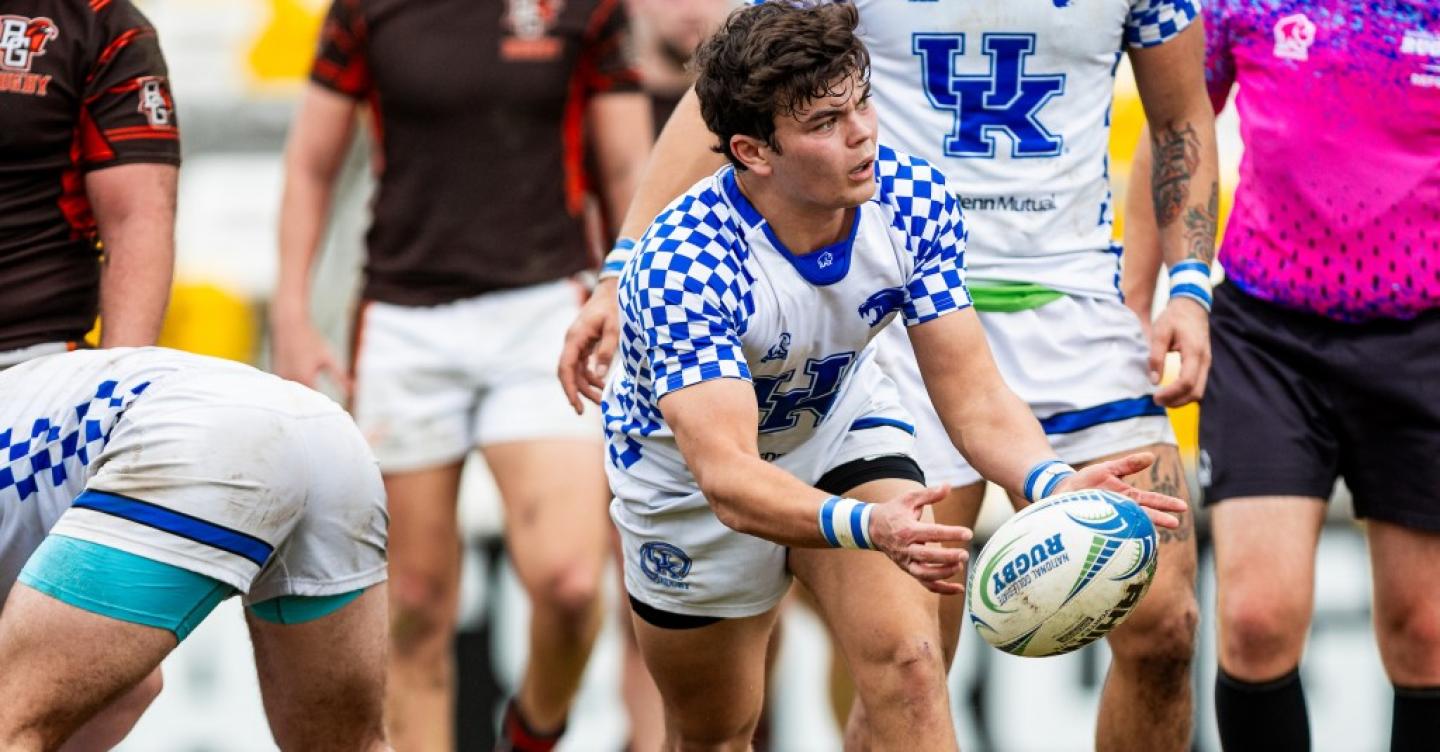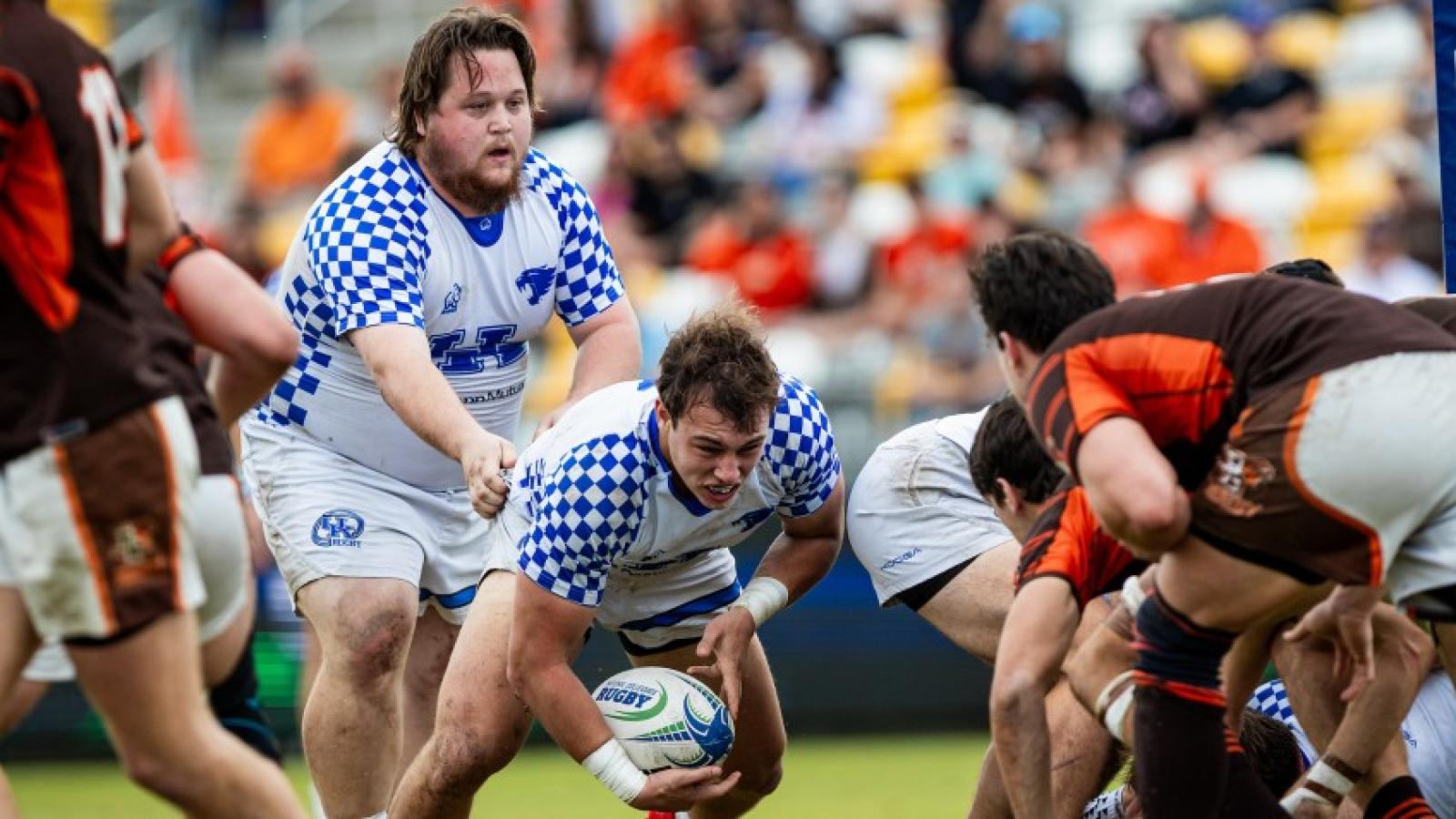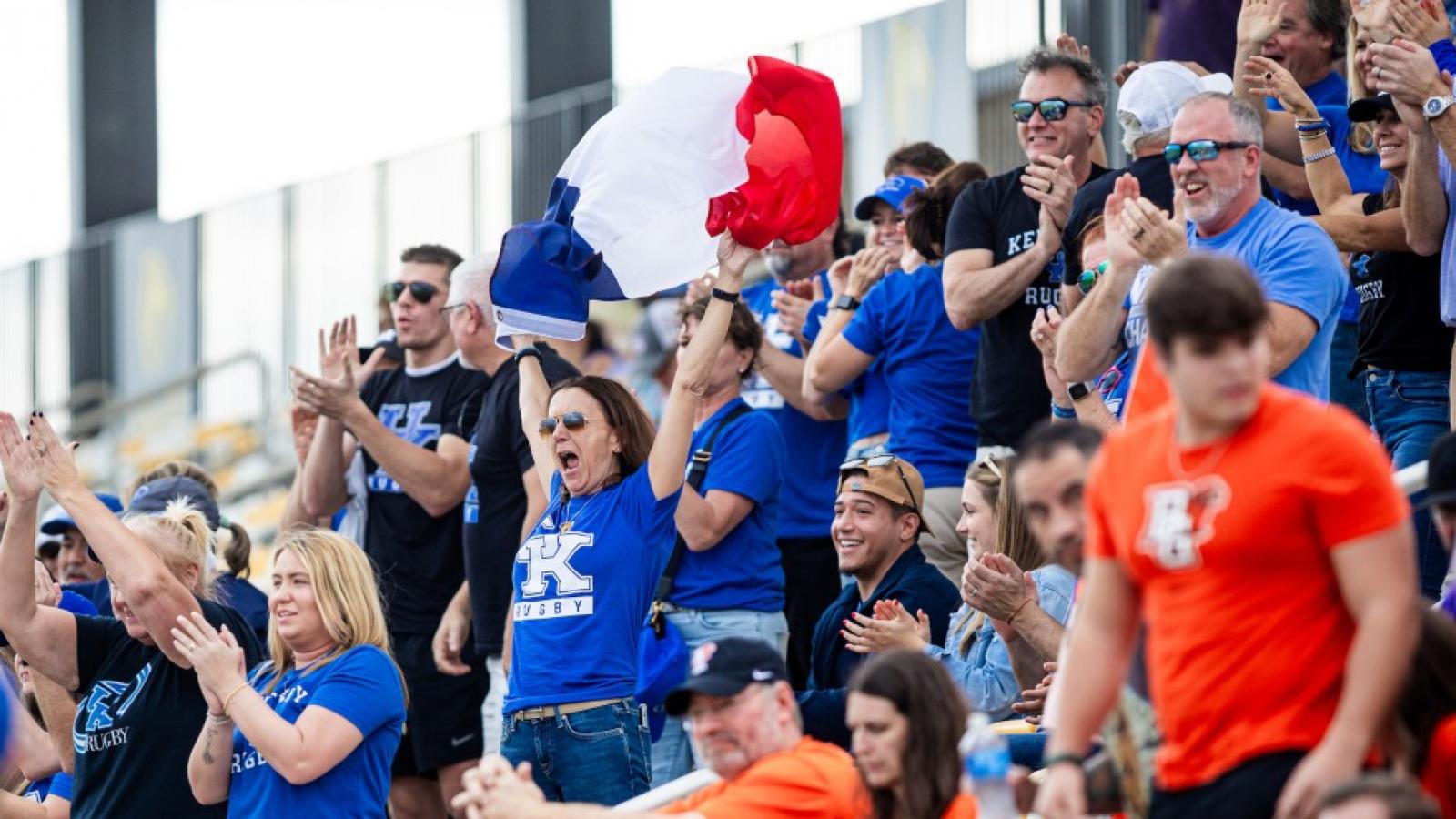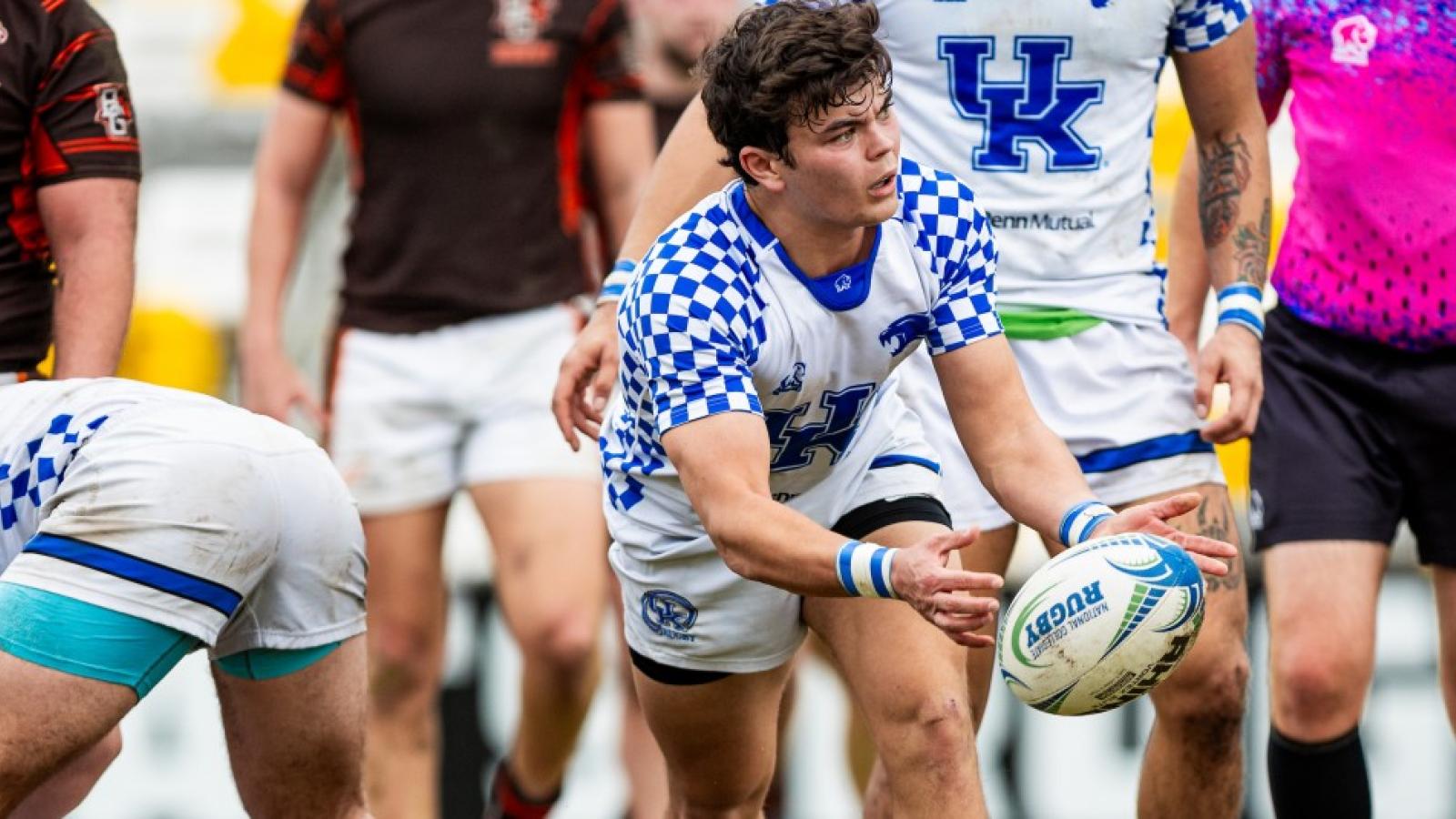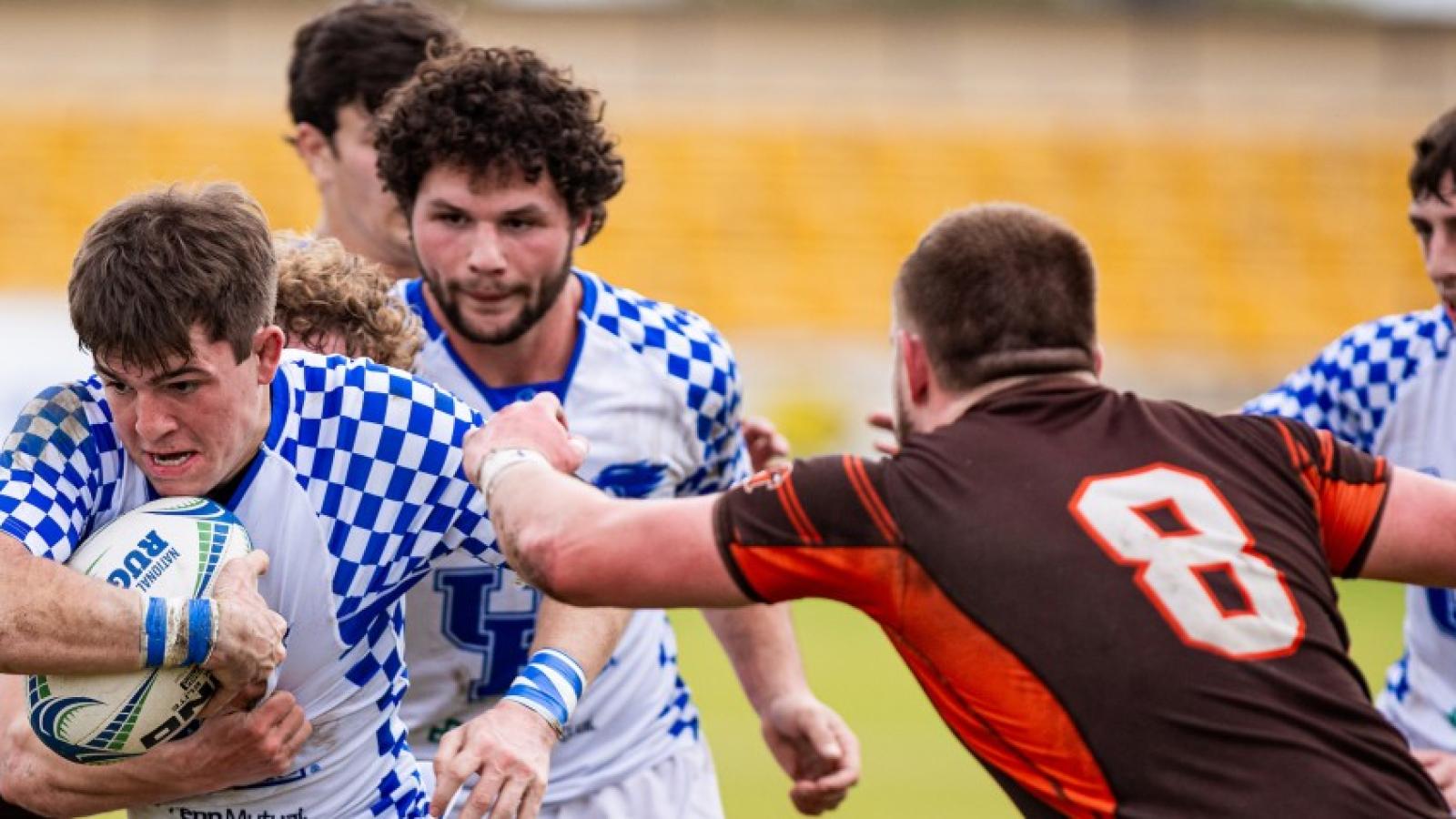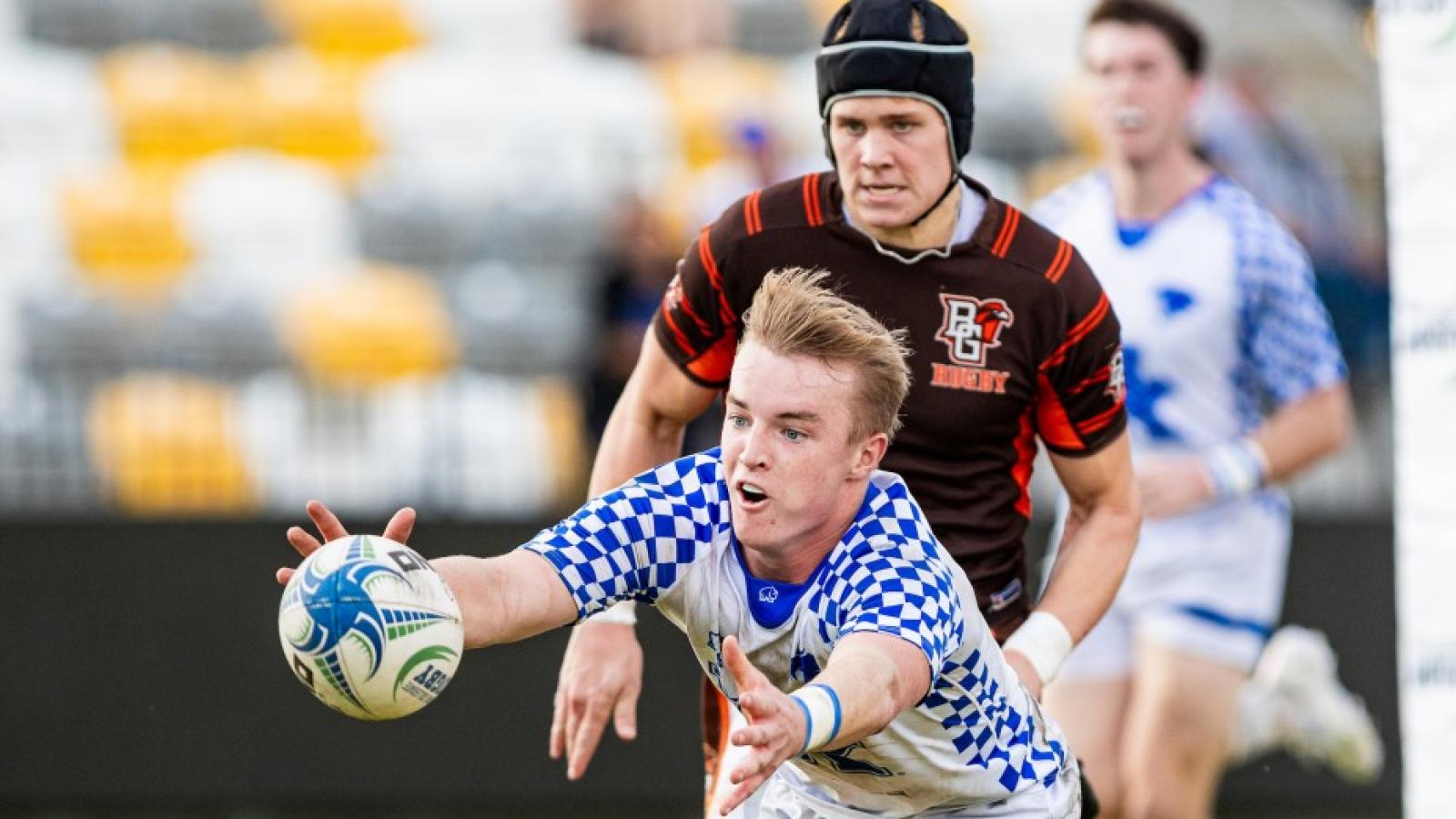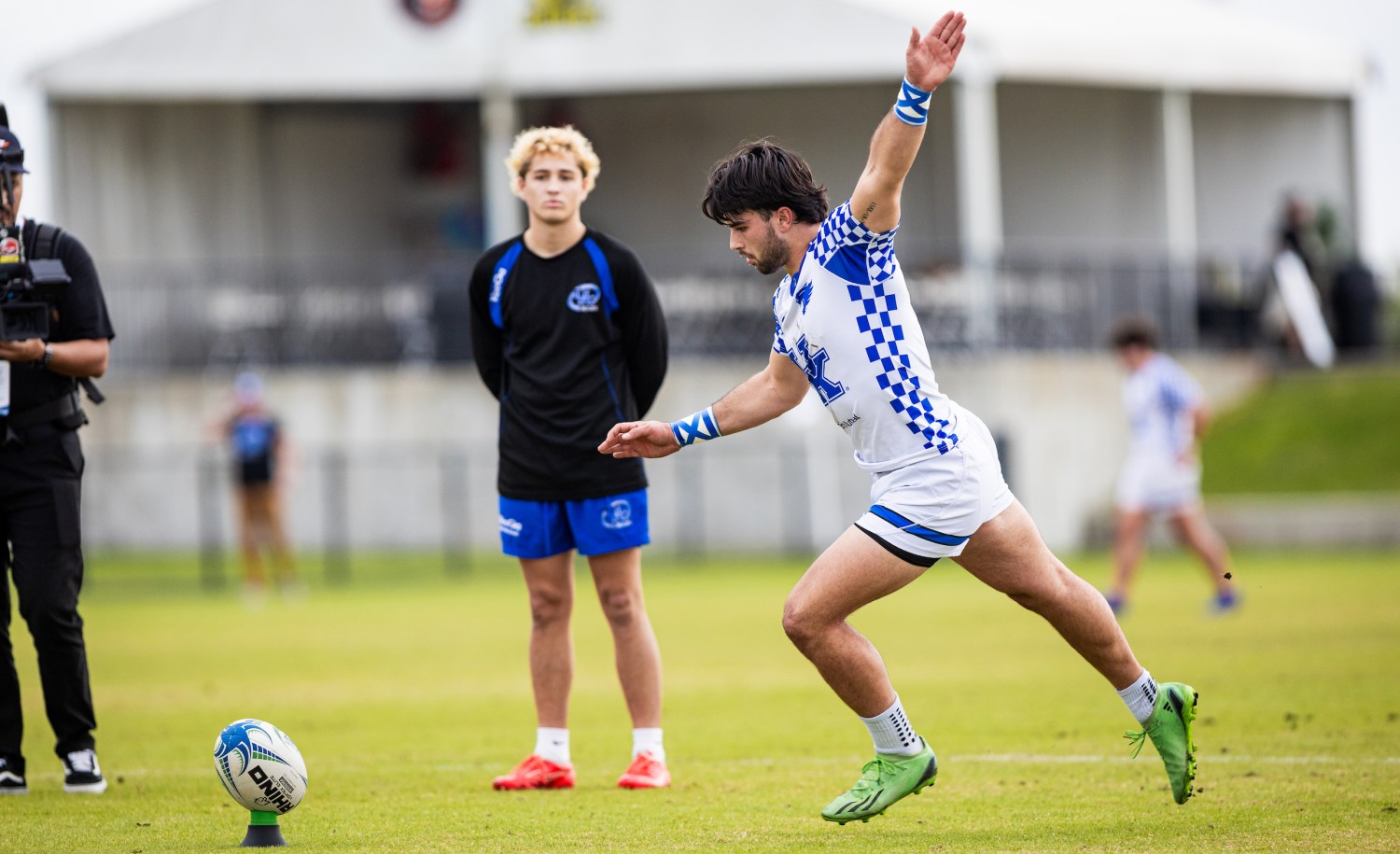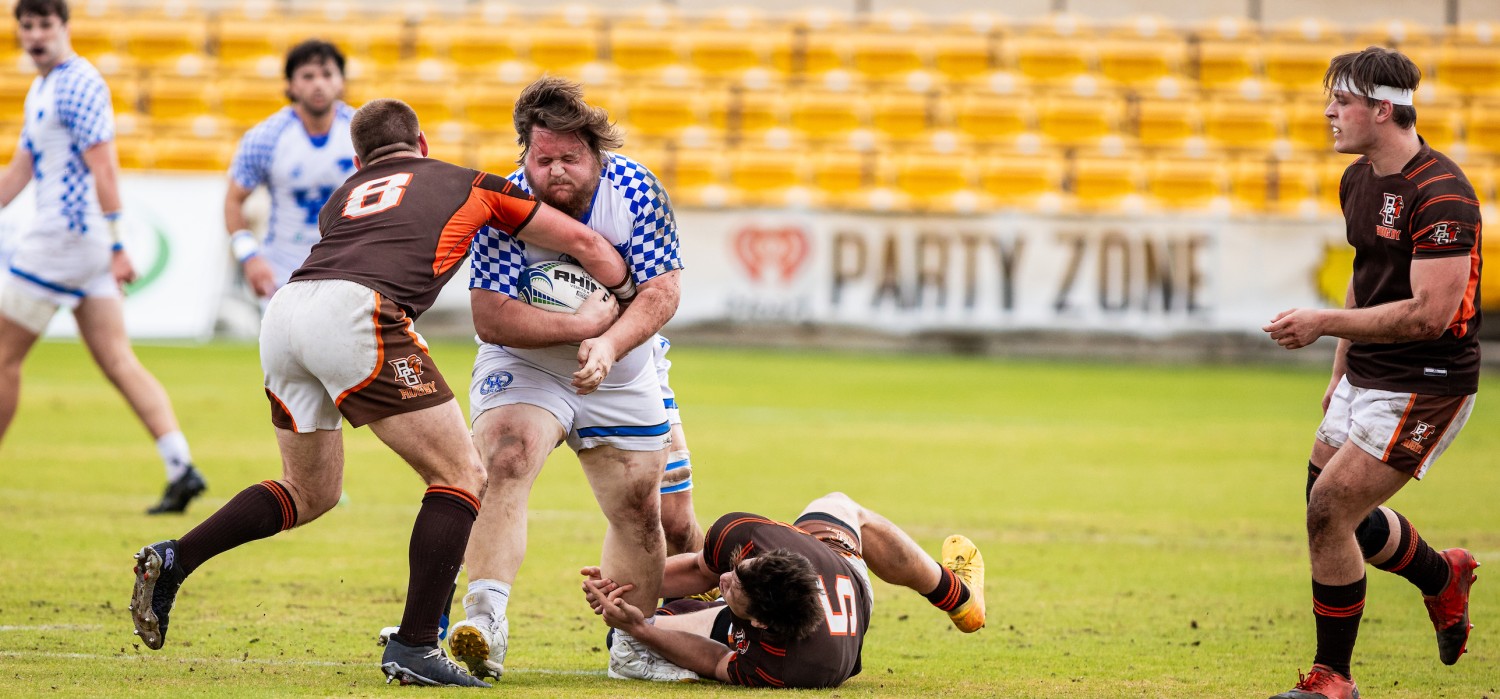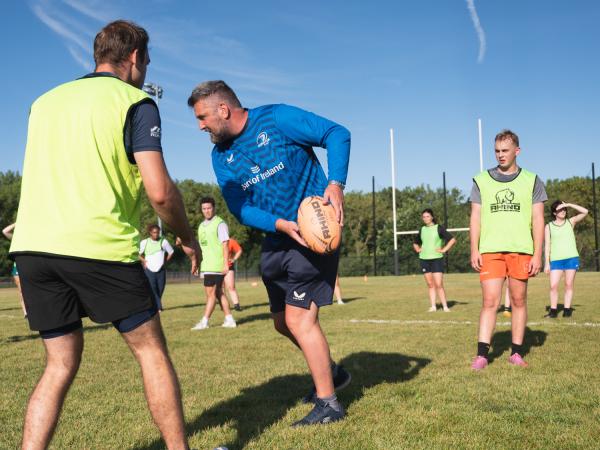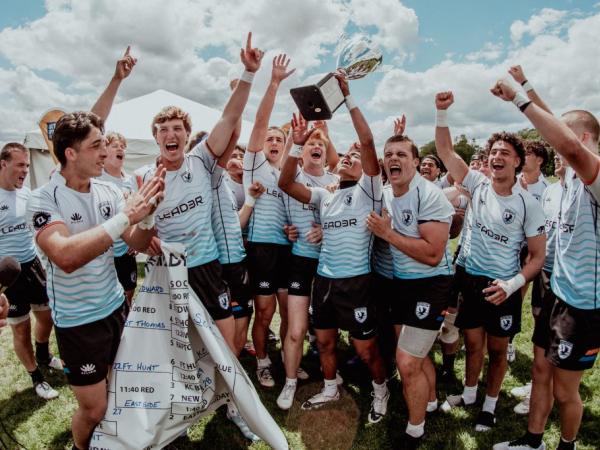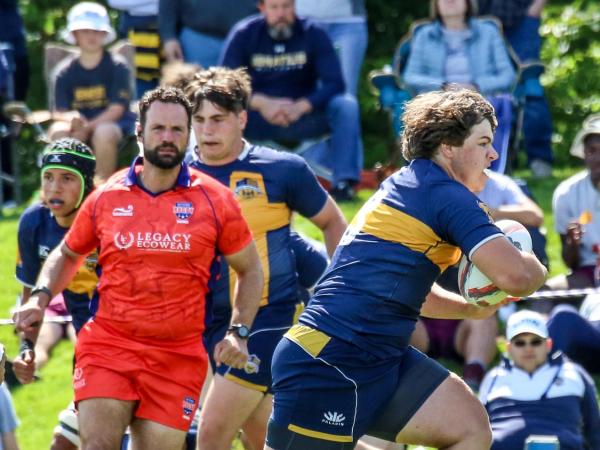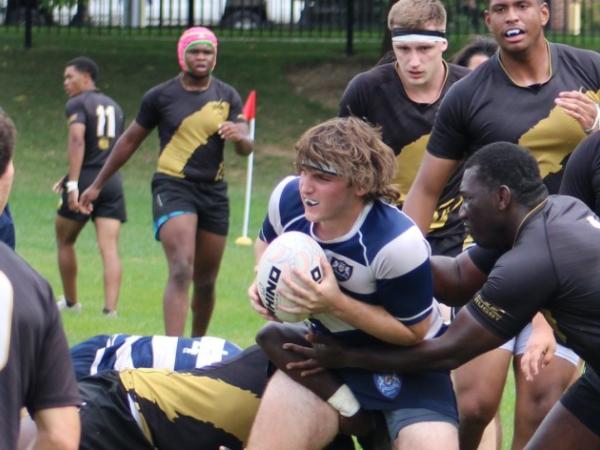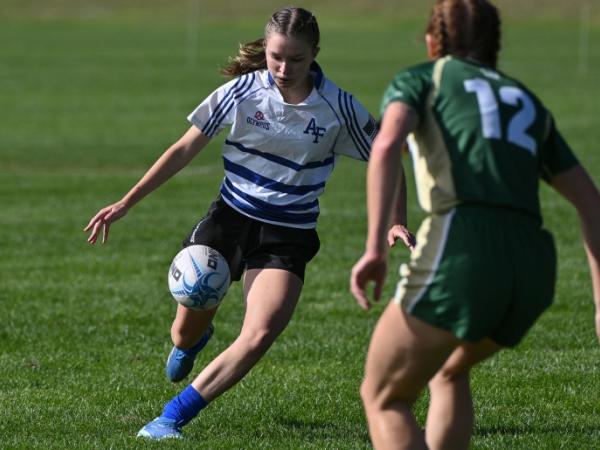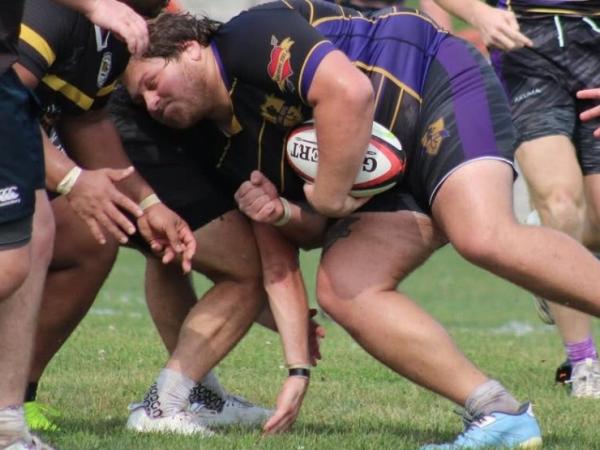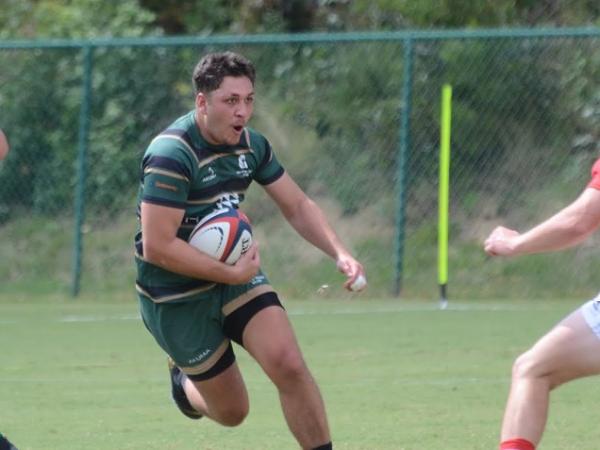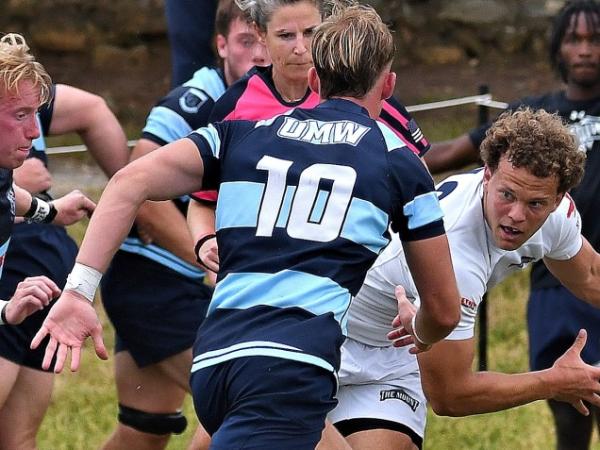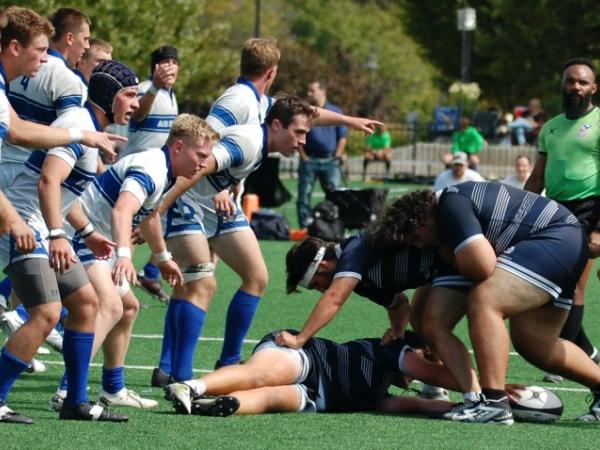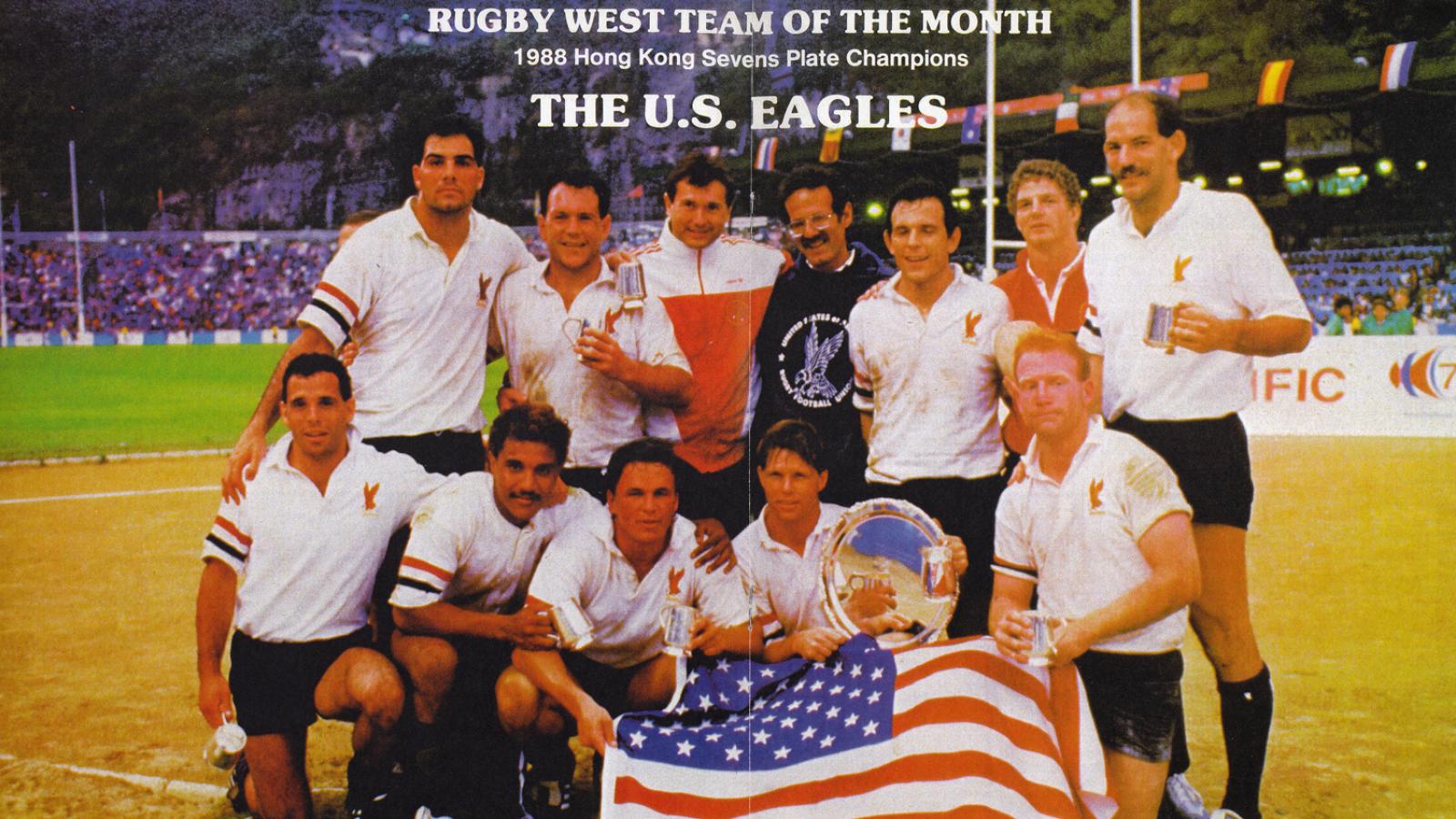It is enormously difficult to repeat in a major championship.
You have to deal with players thinking it's going to be easier this time around. You have to deal with the opposition putting a huge target on you. You have to deal with player turnover that could expose deficiencies you didn't know you had.
So how did Kentucky do it and, given that eventually key personnel will graduate, can they stay at that level?
Culture
“I came to Kentucky in 2022 fresh out of basic training to be an infantryman in the Army National Guard,” said Dalton Stevens. “And when I came to campus and I didn’t have an identity outside of the Army. One time I was sitting in class, Blaine Donlan was sitting next to me and said ‘hey, man you have the build to play rugby. You should come out. I went to practice and Immediately you could just tell it was something you wanted to be a part of.”
Stevens was drawn to the team aspect, and of the game and how that jibed with his military experience. He especially liked how experienced players welcomed new players, rather than making them jump through hoops to feel part of the team.
“I started playing fullback and John Hall was one of the first people to take me under his wing,” Stevens said. “He showed me what the position was about. And that spread out through the team. I found myself hanging out with the team. The whole culture is about family. We stay in houses near each other. It’s not abnormal for guys to drop by and just hang out for hours at a time. The parents are part of it, too. Everybody’s parent is a parent to every player. I just don’t think anyone does it as well as we do.”
“Our leadership drives the culture,” said DOR Gary Anderson. “We have a great coaching staff but a lot of programs have world-class coaches. But we work to build leaders.”
“Our parents are very, very involved,” added Head Coach Sam Enari. “They go to games, they bring food for trips. They work on fundraising. As a result these guys feel supported.”
And part of that is the recruiting part. The players Enari and Anderson recruit are serious about their rugby, but also serious about life.
“We don’t get a lot of guys who ‘might’ play rugby,” Enari said. “If they are coming to Kentucky then rugby is a big part of that decision. I am not looking for headaches, so you have to be on top of your schoolwork. Talent out of high school is nice but not the be-all and end-all. And we don’t recruit kids for the resources their family may have. But, since we recruit almost exclusively from out-of-state they usually have some resources. But what we really need is for the players to be invested in each other.”
And then Anderson provides a professional development piece. A business owner, Anderson brings in alumni who have found success after graduation to talk about careers, and Anderson also works to start connections between alumni and current players. While there might be someone out of Kentucky who plays rugby at an international level, the greater likelihood is that they will have to get a job.
“I run a business. It’s successful, and from a strategic standpoint, how to run a business and how to manage employees is something I have a perspective on,” said Anderson. “I can sit down with the boys and talk to them about what it takes to be successful in life in the real world."
Anderson has the players do presentations with an eye toward a professional plan. The alumni talk to them.
RMA CoachTalk Chat with Sam Enari>>
“We deal with issues that freshmen struggle with,” said Anderson. We talk about life lessons, and we’re also looking to give guys a leg up. With business and engineering kids, we’re able to set them up with an alumni mentor. SO they got not just rugby but some real-world stuff … they players might not always understand but the parents do. We talk about ‘here’s how you dress, here’s how you speak. He’s how you handle yourself, but we’re also there as a coach or a mentor or just someone to talk to.”





